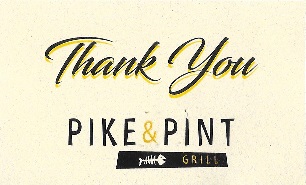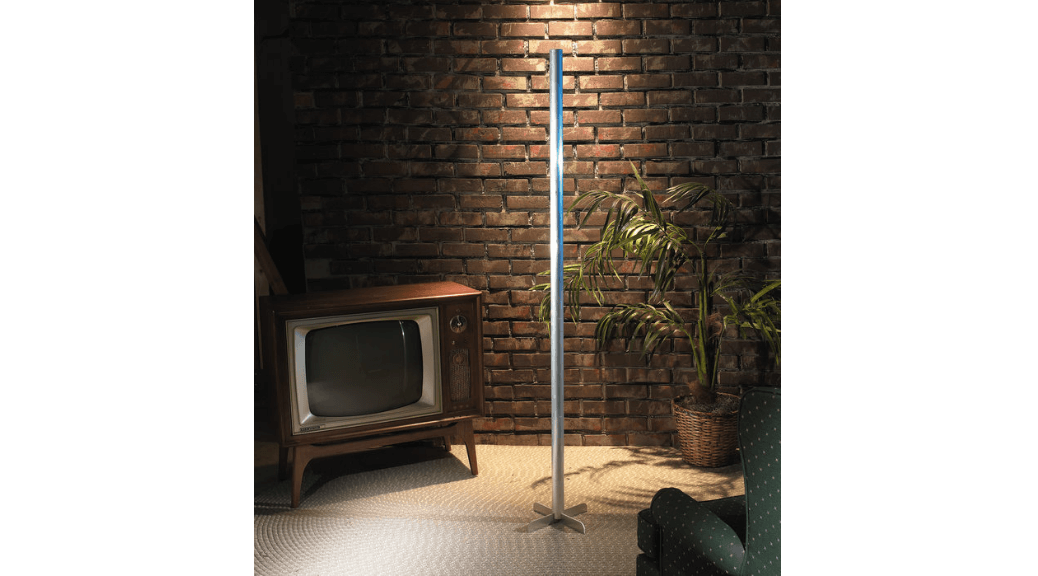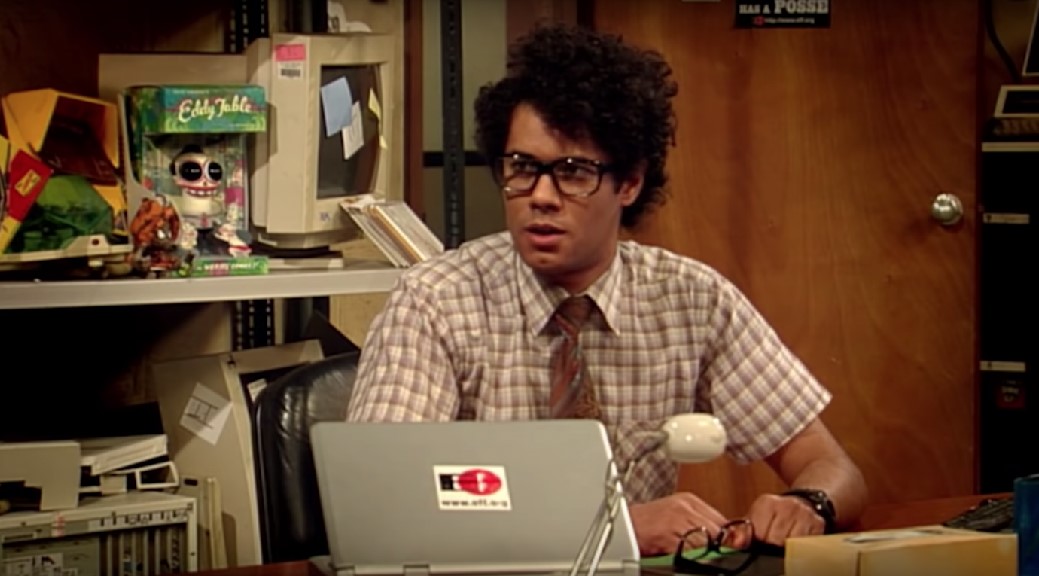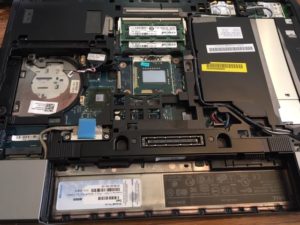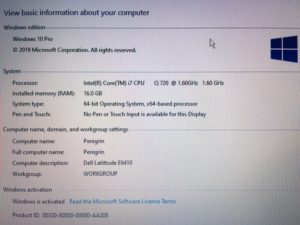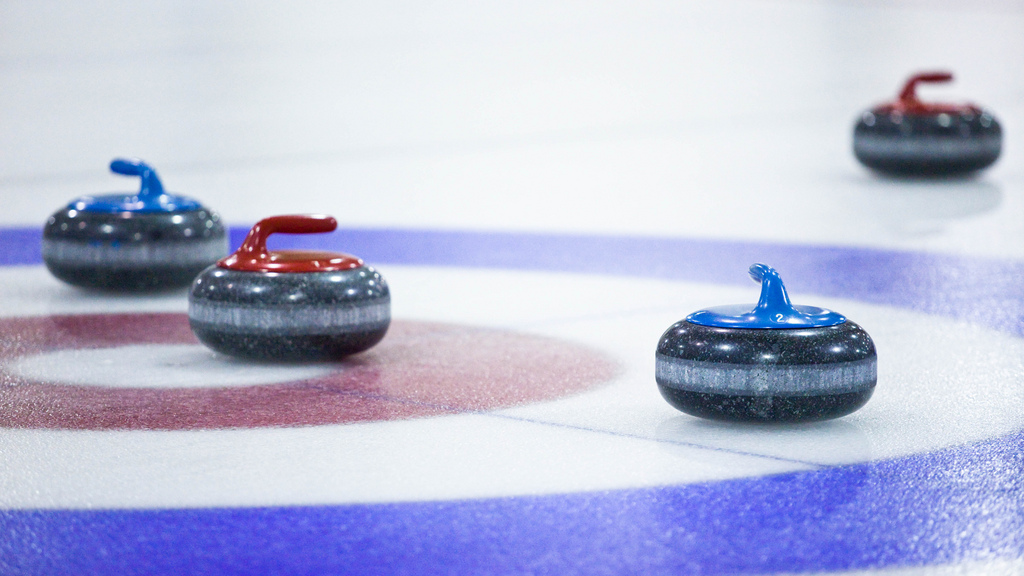From biking in the area, and the Running-All-Hartford-Streets project I began on Jan 29th, I've collected numerous items I call "road bling" - shiny metal objects that I use to make race-medals for various events with friends. Several of these are of unknown function. This series is to let you engage in investigative forensics on these road/street enigmas.
Category Archives: Miscellaneous
5 Favorite Things 2023
Racket Magazine asked their readers to list their 5 favorite things from the year. Any topic. There were a lot of cool lists so I thought we could do one as well. I'll start:
Freealonzo's five favorite songs performed live in 2023 (out of 60 plus live shows)
Young Til I Die - 7Seconds. Seeing 60-something punks singing this in front of a venue full of 50- and 60-something old punks was really cool. Talk about living the words of a song.
Precious - Pretenders. Seeing Chrissy Hynde sing this 5 feet in front of me at the 7th Street Entry will be long-held memory. I couldn't believe I was there seeing it.
All I Do - Bully. Great first song of the album. They led with this song at their show at First Avenue and started playing while the screen while the screen rolled up.
Where Were You - Mekons/Eleventh Dream Day. Two iconic bands playing an iconic punk song on a warm friday night at a streetfest in Chicago. I was appropriately buzzed.
Game of Pricks - Guided By Voices. This was at the GBV 40th anniversary celebration in Dayton, OH. I had never experienced such love between a crowd and band before. Every single person singing at the top of their lungs and then we gave each other bro hugs afterward.
What are 5 favorite things for your from this past year?
Do You Believe in Miracles?
I have some free time on my hands this week so I've been going over the events of the last nine day that led me to where I am today - still alive and getting well again. This recounting includes reviewing lab data, imaging, and notes in MyChart, recalling doctors post-operative conversations and doing some digging on WebMD and Mayo and Cleveland Clinic websites. It's been something of a revelation for me.
Last Tuesday began like any other workday lately. I got up, had breakfast, showered and dressed, then headed down to my office to work. Because my wife is on mandatory overtime through the end of the year her in-office requirements are waived so she was also working from home that day, which would not have been typical as she tended to work Monday through Wednesday in the office and Thursday and Friday at home. Sometime around mid-morning I started to feel some abdominal cramping. Nothing major right away and I brushed it off as gas pains, but they didn't relent, and in fact just got worse. Eventually I found myself in the bathroom trying to get something, anything to pass through my colon but no dice. My wife offered to take me to the ER but I declined, still thinking whatever it was would pass. But no, it just got steadily worse and worse, I vomited a few times, and within an hour of so I was thrashing around in bed, moaning and sobbing through the pain. Luckily, my wife is smarter and less obstinate than I am about these things and she called an ambulance.
I don't remember much about the ambulance ride, didn't notice if they used a siren or not. I remember being cold, very very cold, and the road being nothing but washboards. Last Tuesday was a very busy day in the ER, so busy there were no beds available when I arrived. They put me in a reclining chair in a hallway with no triage or evaluation that I can recall, but to be fair I was only lucid some of the time and out of it the rest. I'm not normally one to cause a scene, but I absolutely caused a big one in that hallway, my speech and behavior were so extreme that the ER nurses were asking my wife what drugs I was on. She was having none of that, though, and told them point blank they were barking up the wrong tree and had better get me some medial attention because it wasn't going to get better without it.
It turns out the condition I experienced, mesenteric ischemia with intestinal infarction, is relatively rare and can be quite deadly. Only about 200,000 people in the US go through it every year. If not treated within 6-12 hours of onset the mortality rate is about 70-90%. Folks like me with a coronary artery disease comorbidity have an elevated level of risk.
When I eventually got into an ER bed and had an initial evaluation, they told me flat out my vitals were horrible and my labs were worse. At some point a nurse did validate what I was going through, telling my wife the doctor said it's one of the most painful things a person can experience. Eventually the doctor came in and said I needed immediate surgery and without it I would die. I deferred to his authority and concurred with his diagnosis. My blood pressure was up to 255/140 with a pulse of 40. My body temperature was around 92 degrees, but I was sweating so hard the thermometer stickers they put on my forehead kept falling off so they had a hard time getting a good reading on that, even with an oral thermometer. I was septic and going downhill like a runaway bobsled.
Once the medical team decided on a course of action things moved pretty fast. They needed imaging so at that point they finally decided to start treating the pain. It took every last measure of will power and strength I had in me at the time to hold still enough for the nurse to get some Dilaudid into my IV. That took the edge off enough for me to get some level of control over myself again and off we went for a CT scan.
Generally speaking, vascular issues like clots and vessel blockages are primary causes of this condition. My CT scan showed some stenosis in the main vessels feeding the bowel, but the consulting vascular surgeon decided that did not appear to be the cause of the ischemia, which is actually a very good thing in terms of long-term prognosis. Instead, the whole thing started 14 years ago when I ignored, then endured similar abdominal distress until my appendix ruptured. It took a long time, but eventually scar tissue from that surgery completely encircled the bowel, cutting off the blood flow. Then just for good measure, the small intestine collapsed at that spot and two parallel sections twisted around each other creating a complete intestinal blockage. Picture a ring bologna hanging in a deli window and that was my gut.
Pre-op was kind of blur, and all I wanted was the pending anesthesia that had become the only light I could see at the end of my tunnel. As they rolled me off to surgery, I wondered if I would make it out of the woods, but somehow the fear of continued pain pretty much wiped out the fear of death. I was ready for it to end one way or another. I'm neither proud nor ashamed to admit that now, it just was what it was at the time.
I am not a religious man, though as a natural born seeker I've studied religions my whole adult life. Religions are manmade institutions and while I respect any faith that passes the muster of being based on altruism and empathy and compassion, rigid dogma and doctrine are not for me. I have a personal relationship with my personal conception of what I consider a universal deity, and that's enough for me.
We call this time of year the season of miracles. You simply can't deny that otherwise unexplainable things happen from time to time, and when the outcomes are especially good we call them miracles. I've always been reluctant to attribute them to divine intervention. Today I find that reluctance at an all-time low. I do believe in miracles, and I believe that forces beyond my comprehension can intercede on my behalf. I believe it because this is not the first time I have been in dire situations that against the odds turned out as well as I could have hoped. I believe in miraculous intervention now because I choose to believe it, and because it's a much more interesting and exciting possibility than random chance or coincidence have to offer.
Happy holidays, my friends. I wish you all the depth of gratitude for life that I feel today, and an abiding faith in love and humanity and our capacity for kindness and generosity. Cling to the ones you love like your life depends on it, because indeed it often does. Peace be with you.
World’s Greatest Caucus – 2022
Sunday May 29, 2022
12:00 p.m.
Pike & Pint
Alexandria, MN
Here’s a post that everyone can respond to in order to keep all responses in one place and accessible.
zooomx.2’s offer:
I am going to close to the public on Sunday (29th) and Monday that weekend. The Twins play at 1pm on Sunday. I would be willing to open up at noon for the caucus. My thoughts would be to have one of my cooks put together a little lunch buffet for the group. I would have a bartender on staff. Food is on me, cocktails would be cash bar. Bring the kids. If its nice weather we will hang out on the patio. If it's inclement weather, me hang out in the bar with the 6 TV's. I can break out the cribbage boards and some cornhole boards.
The Airing Of Grievances 2021
The floor is open.
The IT Crowd: Laptop Dance
Several months ago I had plans to do another upgrade project on my laptop. Built in 2010, the Dell Latitude E6410 has been my daily driver for many years now. I had already done the quick and easy upgrades, exchanging the original hard drive for an SSD, swapping out the wireless card for an 802.11ac model, and adding an HD decoder card for flawless video performance. But I wanted more. I did some research and found that you could replace the stock Intel i5 processor with an i7 and thereby increase the RAM capacity from 8GB to 16GB. Since more is better but I also tend to procrastinate a bit, I got the parts and then never got around to doing the project. Until now. There are lots of reasons to like a Latitude - good design, solid builds, and value. Because of their widespread enterprise use you can pick up 3-4 year old off lease models on eBay for a song. But for me the kicker is how easy they are to work on and upgrade. The back cover is held on with a single screw, and once removed you have access to the whole can of worms.
Right there in the middle is the new CPU, an i7 720qm quad core running at 1.6 gigahertz. Over to the left next to the cooling fan compartment is the NVidia video processor, and that is where my project went sideways. When I removed the cooling fan to get access to the CPU, the thermal pad between the GPU and heat sink tore and I had to scrape it off and throw it out. Thermal pads are used to fill gaps between processors and heat sinks so they maintain good contact and provide efficient heat transfer for cooling. When I reassembled the unit I gooped it up with thermal paste, but the gap was too big. I got good heat sink contact with the CPU, but not the GPU, so when I tested it out the GPU temperature was spiking up to 80 degrees Celsius. It got so hot that it affected my keyboard, which started to lag and glitch. No good. So while I consider the project successful, it's not quite finished. I have some thermal pads and copper shims on order that should be here by Monday. In the meantime, I'm working on my daughter's old Lenovo Thinkpad T400 that I resurrected to serve as a backup until my parts arrive and I can complete the Latitude project. After that I'm going to tackle another long overdue project, upgrading the processor and adding an HD decoder card to the old 15.4" Thinkpad T61, the last of the true IBM laptops, which is currently running Linux Mint 19.3 Tricia like a champ.
JeffA Evening Service
Good evening, everyone. Let us come together and watch JeffA's evening service. Start time is 7:00PM South Dakota time. Link forthcoming.
Thinking About The Good Place
After finishing The Good Place a few days ago, I’ve found that it hasn’t been far from my mind. Obviously the show has some appeal for me, what with all the philosophy talk and such. But I wanted to say a few words, specifically in response to something Nibs said earlier.
Heads up, spoilers may abound. You’ve been warned. Also, this is a bit rambling. Again, you’ve been warned.
Anyway, here’s what Nibs wrote:
I really liked the horror of infinite wish fulfillment as a kind numbing negative thing. I'm not sure that I'm totally sold on their solution to the issue, but it was vastly better than "everything perfect forever" as an ending.
This question – and the whole show really – touches (embraces, encircles, confronts directly) one of the great questions in life: what do we want the afterlife to be?
It’s no secret that I’m a person of faith. I believe in an afterlife. But even if you don’t, I think this question really captures something fascinating about human nature. If you had infinity time, what would heaven be? Can anything infinite even really be called heaven?
The Good Place captured this succinctly, with the happiness zombies in the Good Place, where people were completely numb. Infinite wish fulfillment is, frankly, crap, according to human nature. We crave challenge, growth, improvement, variety, etc. That’s just in our nature. And it is precisely why traditional notions of heaven are so… depressingly boring. Harps and clouds and sitting around with nothing to do. Blech. But even if heaven is infinite wish fulfillment… is that really better? According to The Good Place the answer is clearly “no.”
So what would we want the afterlife to be? It’s actually a topic I’ve spent a long time thinking about, particularly since my sister passed away. Now, I believe in a Heaven and a Hell, and that, in some form or another, what we do on Earth directs what our afterlife might be. But I also don’t super-subscribe to traditional notions of afterlife and that somehow sitting quietly in a church your whole life is what gets you to heaven.
In fact, that notion is part of what helps me think about the afterlife. See, I think life is meant to be lived, not hidden away from. If you want to be a good person, in the truly virtuous sense of the word, that probably means getting out in the world and living life to the fullest. Being a positive influence in people’s lives. Loving. Laughing. Crying. Suffering. There is beauty in struggle. There is something human in pain. If we could just infinitely waive away all unpleasantness, we’d basically be those happiness zombies of the Good Place.
So for me, the test of whether you would get into heaven at all turns less on traditional notions of “good” and more on notions of whether you’ve lived life the fullest in a virtuous way. Did you seize your opportunities to make the world better? Did you push yourself to grow? Did you suffer loss because you had things worth losing?
And I think to some extent, this approach helps address the “problem of infinity.” A person who lives fully is going to be less likely to be bored with the afterlife than a person who just seeks the pleasurable ends. Ultimately, I think the true answer to the problem of infinity is that time doesn’t exist in the afterlife – we’ll all experience it the way Janet does (or maybe as the dot over the ‘i’?) – but I think the notion of an afterlife that fulfills human nature is a heck of a lot more appealing than the traditional notions.
I also think that there is one final smart move that The Good Place made: in having characters walk through that final door, they left the ultimate afterlife as an unknown. Which, of course, it is. But they showed that essence of Eleanor drifting back to Earth and landing on that one guy, who was influenced to bring Michael his mail. That influence itself is a huge part of the afterlife: namely, the way we live on here on Earth, after our lives. We want to have a lasting impact on the people still here (note: the absence of children for all the characters makes perfect sense, but I’d love to see what they’d have done if any of the main 4 had had kids on Earth).
In this regard, too, I think that “living life to the fullest” approach is essential. How many people have impacted your life for the better by sitting quietly and avoiding their own temptations? Probably very few. But how many have impacted your life for the better by either seizing opportunities, living their lives fully, or helping you do the same? And, maybe somewhat depressingly, how many more times could our lives have been better if we’d seized those chances?
Anyway, I’m officially rambling now. But I wanted to get some thoughts down, because they’ve been burning a hole in my head. These are fun questions to think about. And for me the conclusion to be reached – and, the ultimate takeaway from The Good Place – is this:
Life – and the afterlife - is an opportunity to be seized, and Good is in the struggle.
On Mental Illness
Zee German raised a few excellent questions that I thought deserved an entire post.
Do conscientious commentors need to distinguish violent desires from mental illness when we consider the issue? Is it a mental illness, specifically, to be drawn to violence? Or driven to violence? I know you can diagnose anything that deviates sufficiently from the norm as a condition of some sort, but asking from ignorance, is that necessarily the same thing as mental illness?
Before I answer them, though, I think a bit of primer on mental illness is in order. As I already stated, every single one of us experiences mental health symptoms with various levels of frequency and duration, and what makes them diagnosable is whether or not they significantly impact functioning (not whether or not they deviate form the norm). That can be anywhere from impacting your ability to take care of one's physical health, to isolating from friends, to being unable to work or learn new things. That said, here's a very basic outline of the major illnesses that are diagnosed and/or get talked about and some of their symptoms:
- Major Depressive Disorder: sad mood, feeling hopeless, worthless, sleep changes, diet changes.
- Bipolar Disorder: Depression plus periods of mania, which is elevated mood, decreased need for sleep, high energy, pressured or rapid speech, impulsive behavior. Bradley Cooper's portrayal of this disorder in Silver Linings Playbook is excellent.
- Schizophrenia: Restricted range of emotions, or incongruent emotions. Reduction in speech. Paranoid thoughts. Hallucinations. Delusions.
- Post-Traumatic Stress Disorder: Experiencing a traumatic event plus deficits in functioning directly related to that event. Very simply, could be not being able to sleep or focus, obsessing about the event, having flashbacks (i.e. literally being there again), hypervigilance.
- Borderline Personality Disorder: Persistent fear of abandonment that drives most relationships. Often think in extremes or absolutes. Act impulsively.
- Antisocial Personality Disorder (nee sociopathy, nee psychopathy): Lacking empathy, frequently deceiving others for personal gain, aggression towards others, lack of remorse
So let's answer the questions:
Is it a mental illness, specifically, to be drawn to violence? Or driven to violence? I know you can diagnose anything that deviates sufficiently from the norm as a condition of some sort, but asking from ignorance, is that necessarily the same thing as mental illness?
There are two ways to answer this.
If we clarify violence as any act that hurts another, then the answer to these questions is categorically no. I enjoy violent video games and movies. I've punched somebody before when a diplomatic solution was smarter. I've also had periods of extreme duress and exhaustion when I wanted to hurt my baby (disclaimer: I haven't, though once I jerked my toddler's arm too hard; still feel guilty). So I've been violent and I've fantasized about being violent. But this hasn't impacted my functioning in daily life nor has it caused me much trouble. So lumping it in with the above mental illnesses wouldn't make any sense.
On the other hand, if we take Zee's questions to be about a specific kind of violence that is premeditated, where the perpetrator takes pleasure and doesn't feel remorse for their violent behavior, then the answer to the question is yes and it's likely such a person could be diagnosed with antisocial personality disorder.
Do conscientious commentors need to distinguish violent desires from mental illness when we consider the issue?
All of this brings me to my answer to this question, which is a resounding YES. One of the problems with the discussion of mental illness in this country is that there is a misconception that raising more money for mental illness treatment will prevent this kind of violence. But experience has taught me that it will not. At least not directly.
Disorders like schizophrenia are deeply rooted in genetic luck and people who have it need significant amounts of resources to be successful in the community. Schizophrenia needs more money.
Depression and PTSD are a combination of genetics and environment (e.g. some people can experience the same trauma and their brains experience it differently) and extra resources can help people who have these disorders be successful in the community.
However, there really is no great treatment for antisocial behavior (though animal therapy has shown some success for those displaying antisocial traits while still young). Most people who lack empathy and remorse don't seek treatment, or if they do it's for something else like anxiety. There's no pill that can create empathy. I work with a guy who is textbook antisocial; he is racist, xenophobic, sexist. And he wants help with getting money and housing, but has never shown remorse for anything he's done, including sexual assaulting many women. There are resources out there to get him housing. But he's been kicked out of everywhere he's ever been, including all of the shelters, because of his behavior.
So while the DSM-V considers both Carrie Fisher and Jeffrey Dahmer mentally ill, their experiences and needs as humans in society couldn't possibly be more different. Honestly, I wish antisocial behavior wasn't even considered a mental illness. It's the only disorder where being violent towards others is one of the symptoms. And given how many people still believe that those with schizophrenia are prone to violence, I think choosing to use language that makes the distinction clear can only be helpful to those who are unfairly stigmatized every day of their lives.
There is some evidence that antisocial traits have genetic component, and can also be caused by head-trauma or other neurological disorders. Though of all the people I've worked with that have the disorder, they consistently have traumatic childhoods filled with abuse and neglect. Some people who are abused and neglected wind up with no mental illness. Some develop other mental illnesses. And some who may be genetically predisposed to antisocial traits have it nourished by abuse and neglect. While I'm not against research that could possibly identify gene therapy that could help, I would much rather focus on building a society that is inclusive and supportive of all people. Where we understand that nobody is born evil and that everyone deserves compassion, because every action someone takes is trying to fit a need they have in that moment. Because while even in that society we will still need to help people who are sad or are hallucinating or have an exaggerated startle response to sudden noises, I suspect that the need to figure out how to keep people from brutally murdering others will not be a big priority.
Olympic Curling – Round Robin (Late Night Edition)
For the night owls.
Men's Tournament - 11:05pm CT
DEN vs. SUI
NOR vs. CAN
USA vs. ITA
GBR vs. JPN
Women's Tournament - 5:05am CT
CHN vs. GBR
USA vs. SUI
KOR vs. JPN
CAN vs. SWE





